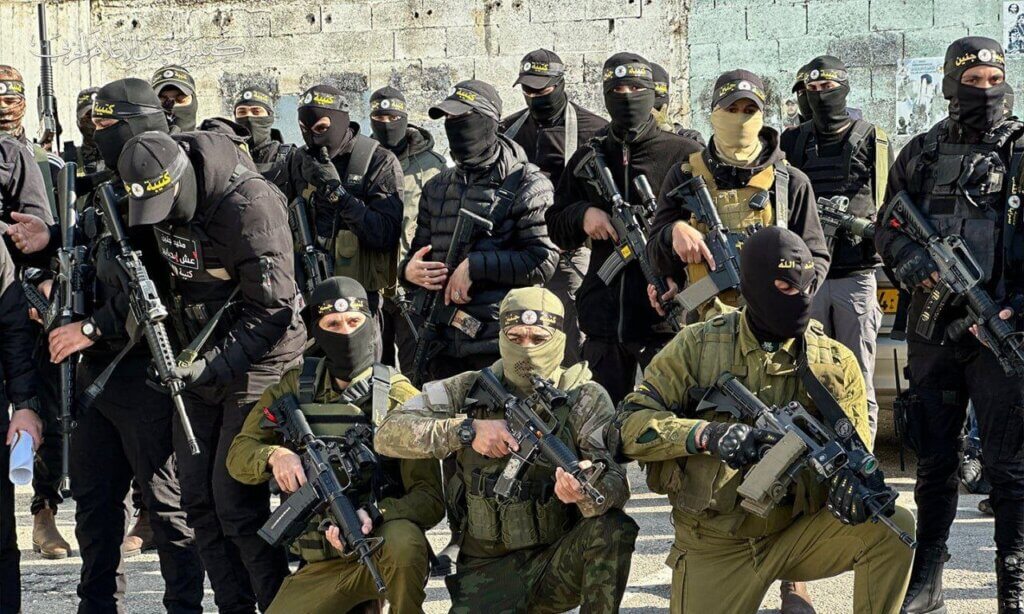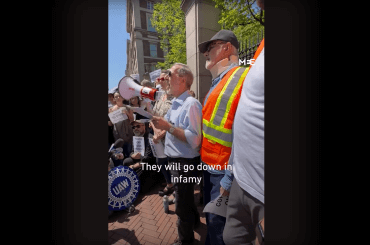Key Developments (July 14 -17)

- On Monday, July 17, the Jenin Brigade put out a statement condemning the Palestinian Authority’s continued imprisonment of resistance fighters and armed Palestinian resistance group members. The statement asserted that the PA had reneged on an earlier promise to release the political prisoners in exchange for allowing PA President Mahmoud Abbas to speak in Jenin following a deadly two-day Israeli operation in the camp a week earlier. As a result, the Brigade called on all Palestinians to take to the streets at 9 p.m. local time in protest against political detainment. This event marked a further escalation of tensions between the PA and the Palestinian resistance groups in Jenin refugee camp, after a week of the spread of the PA’s Palestinian Security Forces throughout the city of Jenin in a bid to assert control over the city in the face of its eroding legitimacy and loss of influence over the camp. As the protests started in Jenin refugee camp at 9 p.m., local journalists reported that heavy reenforcements of PA security personnel were deployed in the city centers of several major cities in the West Bank as a preemptive measure of stifling protest, including Ramallah and Hebron. In Jenin camp, armed members of the Jenin Brigade were joined by the mothers of the martyrs of the camp, who came out in support of the Brigade and condemned the continued political arrests of resistance fighters.
- Three Israeli settlers were injured in a shooting carried out by a Palestinian in the southern West Bank district of Bethlehem on Sunday, July 16th. The shooting took place on a highway outside the illegal settlement of Tekoa, which was built on lands confiscated from the adjacent Palestinian village of Tuqu’. According to Israeli media, a father and his two daughters, both minors, were injured. Haaretz reported that the man was seriously injured but in stable condition and that the two children were treated for minor shrapnel injuries. Following the shooting Israeli forces embarked on a manhunt for the shooter, enforcing widespread closures across the Bethlehem governorate, stopping and searching cars entering and leaving the city, resulting in hours of traffic jams during an ongoing heatwave in the region. Israeli army forces raided Bethlehem city, sparking confrontations with local youth who threw rocks toward the armed soldiers and military jeeps. Soldiers fired tear gas and rubber bullets toward Palestinians. According to Israeli media, the Palestinian man allegedly responsible for the shooting was found by the army inside a mosque in the city and was subsequently arrested. In total, three Palestinians were arrested from Bethlehem, and seven were injured, including six from tear gas inhalation and one from a rubber bullet.
- Israel has approved a record number of illegal settlement construction in the West Bank, Israeli settlement watchdog Peace Now said in a statement on Friday, July 14th. According to the group, Israel’s far-right government has advanced an unprecedented level of construction in West Bank settlements in the first six months of this year, numbering 12,855 housing units across the occupied territory. Peace Now said it is the highest number the group has recorded since it started documenting settlement expansion in 2012. In June, the Israeli government, under the power of Prime Minister Benjamin Netanyahu, passed a resolution transferring the authority to approve settlement-building plans to ultra-right Finance Minister Bezalel Smotrich, a settler himself and an anti-Palestinian racist, who has called for the “wiping out” of entire Palestinian villages. With Smotrich in control, settlement expansion has gotten much easier and has sounded the alarm over Israel’s annexation plans in the West Bank.
- Israeli settlers attacked Palestinians and their property over the weekend in the Nablus and Hebron areas, according to local Palestinian news reports. In the Nablus-area village of Burin, Israeli settlers, reportedly from the notoriously violent Yitzhar settlement, attacked homes on the outskirts of the village with rocks and set fire to hundreds of olive trees. Israeli soldiers fired tear gas toward Palestinians in the village who were attempting to defend themselves and their homes from the settler attack, Wafa reported. In the village of Sebastia, Israeli settlers attacked the home of a local Palestinian family. When the homeowner attempted to fend off the settlers and defend his home from the attack, he was reportedly detained by Israeli soldiers. In Masafer Yatta, also known as the South Hebron Hills, Israeli settlers attacked local residents under the protection of Israeli soldiers, local activists said. Israeli settlers reportedly assaulted a Palestinian shepherd and tried to run over his sheep in the Sadet al-Thala area of Masafer Yatta. In the village of at-Tuwani, Israeli settlers attacked several residents in the village.
In-Depth
Last week, in the aftermath of the Israeli army’s two-day onslaught against the Jenin refugee camp between July 3 – 4, a new kind of battle ensued within the camp, waged by the Palestinian Authority (PA) against the armed Palestinian resistance groups. The PA aimed to reclaim the clout and influence it had lost in the camp over the past two years of resurgent resistance in the West Bank, and its opening move was to make first entrance as ambassadors of reconstruction relief after the destructive Israeli operation — in other words, to gain an economic foothold in the camp. It then escalated its campaign by sending several Fatah delegations to the camp to coordinate for a visit by PA president Mahmoud Abbas, now in a bid to assert political dominance. With Abbas came a fleet of PA Security Forces that flooded the city of Jenin, but when the PA president left Jenin, the Security Forces stayed — in essence leaving behind the necessary manpower to reassert a security presence in the area.
That’s when the political arrests started — or rather, continued without interruption from the previous week, since the Security Forces had already detained several resistance fighters affiliated with the Jenin Brigade before, during, and after the Israeli invasion.
It doesn’t take a security expert or political analyst to see that both the Israeli operation and the subsequent activity of the PA are part of the same holistic counterinsurgency strategy — if not in intent, then certainly in effect. In other words, the phase we are now witnessing might as well be called Phase Two of the Jenin operation. The damage it causes to the resistance is less visible than the destruction sowed by the Israeli army’s bulldozers, but no less deadly.
You can also easily reach this conclusion by following news of the nighttime movements of Israeli and PA forces in the Jenin area, showing the emergence of a clear pattern: the Israeli army has been conducting search-and-arrest operations in the Jenin area’s peripheral towns and villages (Arraba, Misliya, Faqqu’a, Mirka, Fahma, Beit Qad, Arrabuna, Jalbun), while the PA Security Forces have conducted arrest operations within Jenin city. This is security coordination in a nutshell, which despite earlier claims of having been halted due to the Israeli raid, is clearly continuing without a hitch.
At this point, we hardly need to add that Israeli security analysts have also repeatedly emphasized that one of the objectives of the Jenin invasion was to “create the conditions that will allow and encourage the PA to return to Jenin – primarily as an entity capable of reconstruction.”
Today, the resistance decided to respond. The Jenin Brigade released a statement decrying the continuation of political arrests and the PA’s unwillingness to release Palestinian resistance fighters affiliated with the Brigade. The statement asserted that the PA had reneged on an earlier commitment to release the resistance fighters in exchange for allowing Abbas to visit the camp. It then called on all Palestinians to take to the streets in protest against political arrests and to cease its internal repression of Palestinian resistance. While the Jenin Brigade was out in force in the camp, PA security personnel flooded major West Bank cities in a preemptive bid to stop any protests in their tracks. Most of the protests ended up contained to the Jenin area.
The significance of today’s events — even though no major confrontation has broken out from either side as of the time of writing — lies in what might come next. It has become clear that the PA has moved to tighten the noose on the resistance and might move from a policy of containment to direct repression. In that scenario, the Palestinian resistance will be faced with the difficult choice of whether to avoid intra-Palestinian bloodshed or to fight back against those who seek to kill it — and ultimately, it might not have a choice in the matter. But what is certain is that the dangers of the current moment are far more deadly than what any Israeli military invasion might pose.
Important figures
- More than 190 Palestinians have been killed by Israel since the start of the year. 26 Israelis have been killed during the same time period.
- Israeli forces have conducted at least 1,800 search and arrest raids in the West Bank this year.


